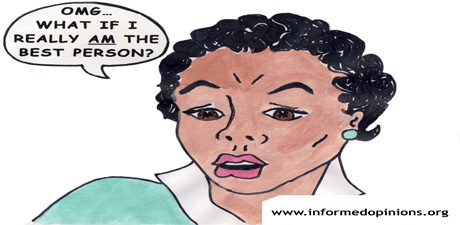What’s happening to women’s history?
Teghan Barton
Congress 2012 Correspondent
The Canadian Committee on Women’s History held a unique session on Monday that was an in depth conversation between two leading researchers, Andree Levesque and Gail Cuthbert Brandt. The topic of discussion was the evolution of women’s studies and women’s history in both Canadian and global contexts over the last fifty years.
It was an illuminating conversation that was made more enjoyable by the personal experiences and anecdotes both speakers shared with the packed room. Stories of how their fields of study have changed over the years as new perspectives and new ways of thinking began to emerge, and how both the research and teaching processes have changed alongside.
One of the impetuses for the discussion was the perception that Canadian women’s history, or even women’s history in a more broad sense, is falling by the wayside. Women’s Studies programs tend to focus on more contemporary issues and today’s feminist researchers are more interested in issues that affect them now. In other programs, the amount of women-specific content is dependent upon individual lecturers and program supervisors; there is no set amount.
In preparation for this article, I looked back over my own experiences with women’s history as well as the histories and voices of other oppressed voices. As a Canadian Studies major, I had a fair bit of history in my education and thanks to some truly wonderful professors (you know who you are), this education consisted of a rich awareness of gender and race — the actions, thoughts and experiences of minoritized voices were worked into course material.
This was reflective of Levesque and Cuthbert-Grant’s point; it was only because of the program leaders that there was such a focus of alternate voices. I have taken numerous courses in other programs over the years, and I could count on one hand the number of courses that had a significant portion of divergent voices and some where I wondered if women even existed in the world that was being taught to me.
In many ways it saddens me, to know – or rather not know – what women have done. Women who have come before me, inspire me and serve as role models to millions of other women. Mary Anne Shadd, Agnes Chan, Dr. Victoria Cheung, LM Montgomery, Agnes Macphail, Ann Harvey, etc.  What stories are we missing out on because we simply do not learn the history? Who are we overlooking? By overlooking women in the past, we risk overlooking women in the present (Julie Payette, Kim Pate, Buffy Sainte-Marie, every remarkable woman involved in the Sisters in Spirit project, etc)
The argument supporting this lack of content in a historical sense, is that women simply weren’t allowed to participate in the ‘important’ things, so there is no history for them. To that I have two responses.
First, while we look back at the strict gender binary of ‘the past’, much like today women defy those rules on a daily basis. I cannot believe that in all of human history women never defied social convention and got involved. To believe that would imply that a whole half of the population was content to just sit back and let the men make all the decisions…for hundreds and hundreds of years. This seems highly unlikely.
Secondly, if we accept that premise, that they weren’t involved in the important stuff, then what were they doing? Because they were doing something…it would be terribly boring to do nothing your whole life. Many women were experts in the domestic realm but many were also highly involved in their local communities. They might have just been wives or nuns, but they were running their communities in ways that were incredibly important (even more so in First Nations communities and the histories of these women have been horribly overlooked in this country). Regardless of what women were doing, it was important. As the world becomes more interconnected, the histories of women from all over the world become important. I want to learn not just what Canadian women were doing 100 years ago, but also what women in India, Korea, Ethiopia, Brazil, etc were doing.
Anything that half the population does is important and to assume otherwise is just short sighted.
Image courtesy of The Kheel Center.









